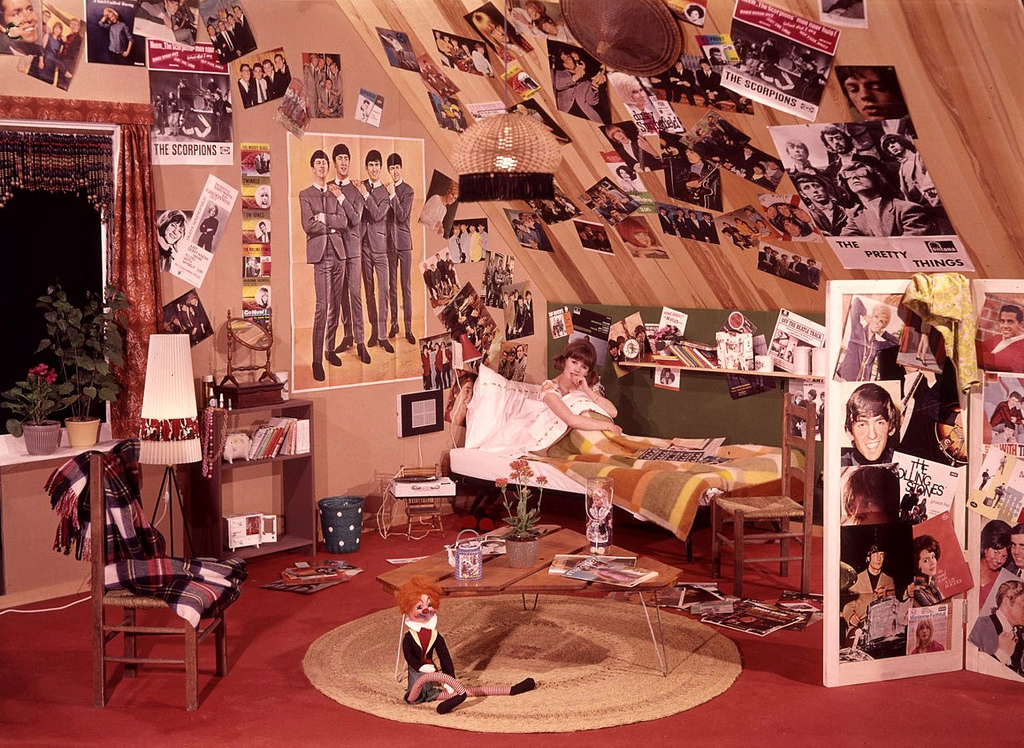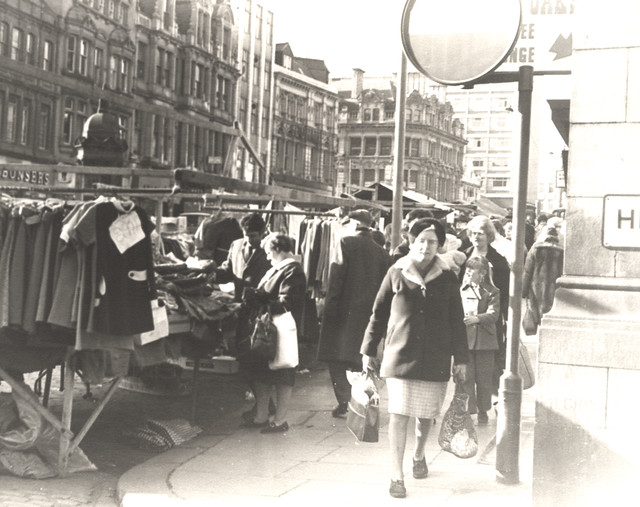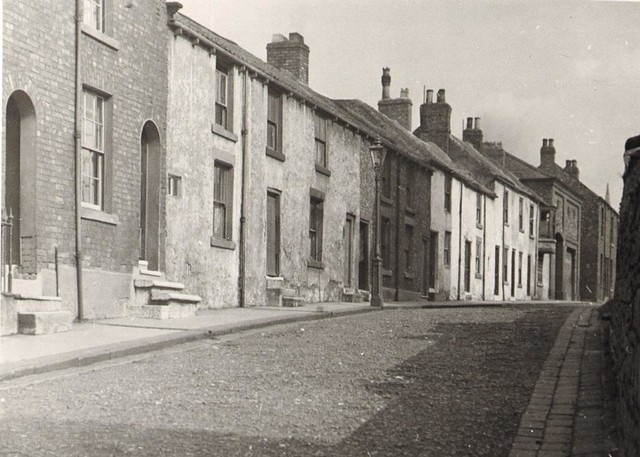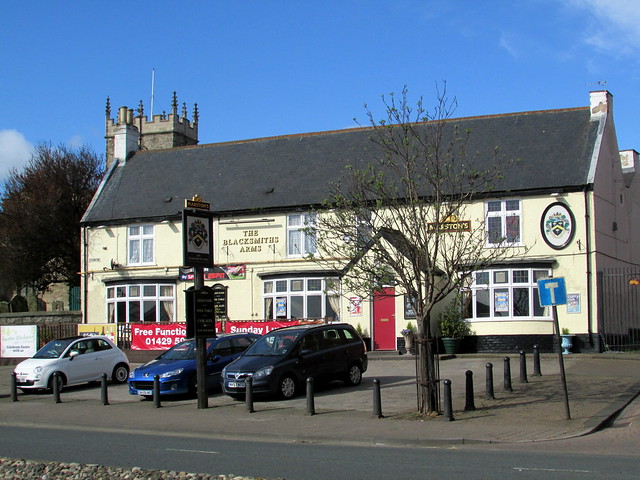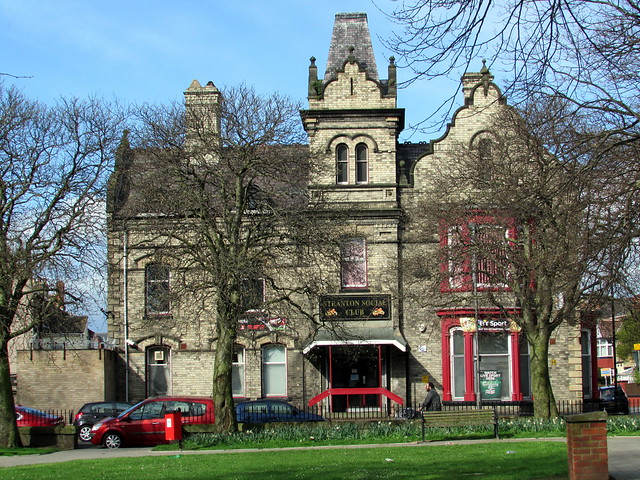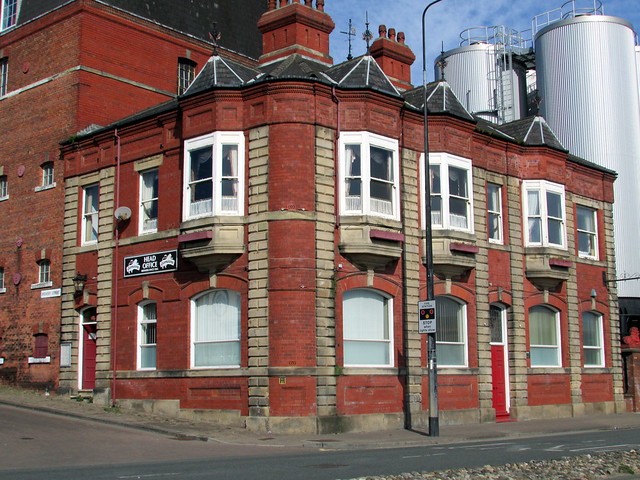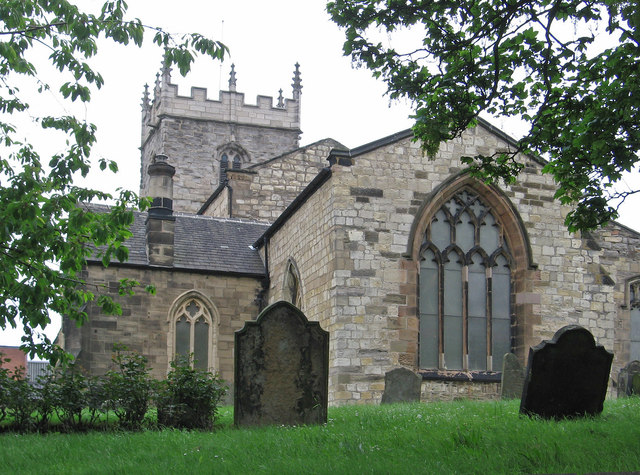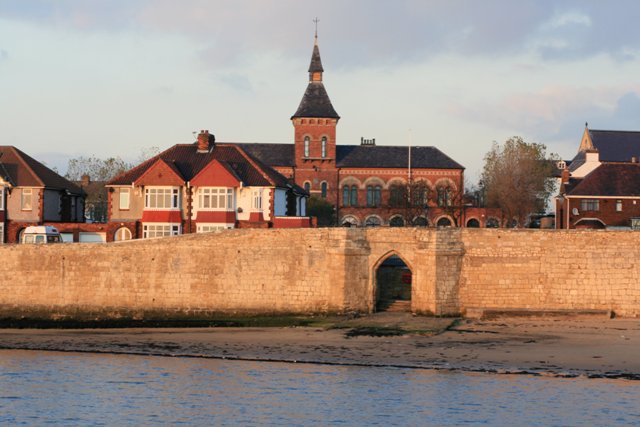memories of the Sixties!

-
Description
It seems strange to think that when I was born in 1949 that hardly anyone had a television set, let alone a car ! The differences in technology, living standards and how we live, have changed drastically. The changes to politics both geographically and 'ideology' wise have brought about new peace but new conflicts as well. What I have found out lately is how much childhood and coming to maturity affects the rest of your life and shapes you for future years. Music was also a huge part of the 1960s. While Liverpool had the Beatles, the London sound was a mix of bands who went on to worldwide success, including The Who, The Kinks, The Small Faces and The Rolling Stones. Their music was the mainstay of pirate radio stations like Radio Caroline and Radio Swinging England. Creative types of all kinds gravitated to the capital, from artists and writers to magazine publishers, photographers, advertisers, film-makers and product designers. The last time we had 0% inflation in Britain was 1960. The 1960's had a serious undertone. It was great whilst it lasted, but because of the rush to change thing's too quickly, the 1970's paid the price with great political unrest and financial disasters. The differences between working in the 1960's and today are quite striking, especially for younger people and a fine example of this was my first ever full-time job when I was 15 in 1964. They were days where you worked where you wanted to work, jobs were plentiful, my first wage packet was £6, government figures show that the average weekly wage is £16. The trend of 'only buy something when you've got the cash' seemed to disappear and more and more Retailers, Car Sales Companies etc., were providing more ways to buy items before you'd paid for them - the credit trend had begun. There's a saying that "if you remember the 60s, you weren't there" For many of you the 60s was about rock 'n roll and sexual liberation, while for others the hardship of the 50s lingered long and prevented them from enjoying the nation's rebirth. Below is a selection of observations about life in the 1960s. I remember bread, milk, eggs and cheese, etc. all being delivered to your house, enjoying life without internet access and cell phone technology. Being amazed at seeing an E-Type Jaguar on the roads in Bristol. TV was black-and-white in those days and had only recently switched to 625 lines. I still remember the huge 'X' and 'H' shaped aerials used by the original 425 line system, all the TVs and radios using valves of course. Boys still wore short trousers at primary school, and graduated to long trousers at 11 when you went to secondary school. The country turned from the black and white austerity of the 40s and 50s into a Technicolor, psychedelic Garden of Eden. Harold Wilson, the new prime minister, hailed the dawn of the classless society. And among white Britons there were fears Britain was under siege from Commonwealth immigrants, a feeling stirred up by Tory outsider Enoch Powell in his famous "rivers of blood" speech in 1968. Not since before the Romans invaded had long-haired people wandered around in public wearing so little. And not since the early Christians had love been so earnestly declared the answer to almost everything. A heady optimism was shared by people who had never enjoyed this kind of cultural power before - the children of dockers and factory workers bringing a transfusion of energy that pale, old Britain badly needed. Having to do your shopping by talking to people over the counter. Frozen milk which pushed the tops off the bottles. Being satisfied the Santa had actually come instead of how much he'd brought. Darned socks. Transistor radios. Being able to play in the street for the whole day hardly seeing a car. Bobbies on bikes. Having a Grandma that looked like a Grandma rather than a big sister. Rag rugs. Roller skates. Wearing clothes on the beach. Footballs with laces. Dad always wearing a jacket when he went out. Homemade go-carts. Prams with big wheels (pre go cart) Free milk at school every morning in 1/3 pint bottles plus a waxy straw. Black-and-white TV, Watch with Mother, Sooty, The Buccaneers, William Tell, Ivanhoe. A feeling that something was not quite right, borne out by anti-Vietnam demos, industrial disputes, but all seemingly made bliss by the World Cup victory in '66. In those days there was still something to be proud about in being British. Our expectations were less so we were more content and it was before the advent of Human Rights activists and child psychologists so people grew up with some self discipline and were more content. We did not have to feel guilty every time we got in the car, switched on the light or had a gin & tonic or pint of beer. The only downside was that women had less freedom and married women, particularly mothers, were still expected to stay at home. Getting a transistor radio and listening to Radio Luxemburg, under the bed clothes. Trying to get in to Top of the Pops when it was taped in an old church in Manchester. The Mersey Sound. Denim skirts and striped sailor tops. The death of Skiffle groups and the rise of electric guitars. Woolworth stores, mod & rockers, Vespa & Lambretta scooters, British built motorcycles and cars, pounds, shillings and pence, Ben Sherman and Brutus shirts, mandatory red socks, ankle high Levi 'Sta-Prest' trousers. London in 1967 and looking to find somewhere to live. Most adverts for letting advertising in newsagent windows stated 'No Irish, no blacks need apply'. I was very lucky finding a very good English family to let rent one of their rooms. My age was 20 years and it was the first time I was away from home. It was a time when elderly people were respected, where teaching had some integrity and teachers were well thought of, where there was one gun related murder a year and the culprit duly hanged. We spent our money on rebuilding the families that had been displaced by the war. Our main concern was to get a job, learn new skills build a better future. A time when we were able to enjoy the freedom earned by the efforts of our fathers. Possibly the most important thing that happened in my life was taking the 11+ test. Amongst my community, and especially my friends, it was considered very 'elitist' to go to Grammar school, and there was scorn and derision hurled at anyone who passed the test and went there. The slum clearance and the lovely, cosy coal fires and kind, patient teachers. New built council houses, which had, joy of joys, a BATHROOM and hot water; in a previous house the loo was down the street and one had to take toilet paper along on a visit, or use the old newspaper strung on a nail. Until 1969, a bath for me was either a tin bath in front of the fire or, for a treat, a real bath with hot water which cost 6d at the public swimming baths. Even in the new house there was only a coal fire for heating, so on cold mornings frost was scraped from the inside of the bedroom window, and one dressed in front of the open gas oven, turned on full for warmth. You could leave your doors unlocked and all that happened was that next door would put your milk in the pantry if you were out and the weather was hot. No thieving. No trouble just community spirit. It wasn't called that in those days just neighbourliness Closeted in the home or watched over by 'helicopter' parents, children lack much of the freedom they had only 50 years ago. British children's play has been transformed in the last 100 years. Up to the 1960s there were few children who didn't spend much of their free time outdoors, playing in the fields, parks, streets, back alleys, old bombsites and local beauty spots. This play was unsupervised by mum or dad and children were free to go on adventures far from home. Sadly this world of independent child's play has today largely vanished. One of the important reasons for this decline is the inexorable rise of stranger danger and child abduction in modern Britain. 1960s The 1960s decade refers to the years from the beginning of 1960 to the end of 1969. It is known as the Swinging Sixties and is associated with the birth of British pop music and fashion. http://www.youtube.com/watch?v=7Ke3RtWdKvM" rel="nofollow">www.youtube.com/watch?v=7Ke3RtWdKvM Events 1961 - First man in space 1966 - England won the football World cup 1969 - First humans to walk on the Moon Population 1960 Population of Britain was about 53 million 1960 World's population was just over 3 billion. Cost of Living The average house price was £2,530 Loaf of bread 5p A season ticket to see Manchester United cost £8.50. Homes and households Most houses now had a refrigerator and a cooker. People could buy sliced bread. Plastic buckets could now be bought. CoCo Pops were launched in 1961. Ice lollies and choc ices on sticks became very popular during the 1960s Electricity For the first time, virtually all houses had electricity. Transport 1969 The Anglo-French airliner Concorde makes its first supersonic test flight. Space 1961 - First man in space. First human space flight to orbit the Earth: Yuri Gagarin, Vostok 1. 1966 - The Soviet Union launches Luna 10, which later becomes the first space probe to enter orbit around the Moon. 1968 - First humans to leave Earth's gravity influence and orbit another world: Apollo 8. 1969 - First humans to walk on the Moon: Apollo 11. Communications 1962 - The audio cassette invented. 1963 - The first geosynchronous communications satellite, Syncom 2 is launched. 1963 - Touch-Tone telephones introduced. 1965 - Sony markets the CV-2000, the first home video tape recorder. Television Most homes had televisions by the end of the decade. Coronation Street first aired in 1960. Live trans-Atlantic satellite television via the Telstar satellite was made possible in 1962. BBC 2 went on air in 1964 and was the first channel to have colour in 1967. Dr Who first appeared on television during the 60s. Juke Box Jury http://www.flickr.com/photos/20654194@N07/4933754453">www.flickr.com/photos/20654194@N07/4933754453 1964 The first "Top of the Pops" on the BBC Presenters: Jimmy Savile and Alan Freeman. Playlist: • Rolling Stones - I Wanna Be Your Man (Promo Video) • The Hollies - Stay (Performance) • Dusty Springfield - I Only Want To Be With You (Performance) • Swinging Blue Jeans - Hippy Hippy Shake (Performance) • Dave Clark 5 - Glad All Over (Performance) • Gene Pitney - 24 Hours From Tulsa (Audience Dancing) • Freddie & The Dreamers - You Were Made For Me (Film Sequence) • The Beatles - I Want To Hold Your Hand (News Footage) Shops The first supermarkets opened – mainly in town centres. Now you could buy all your food in one shop. Houses In the 1960s, tower blocks were considered a solution to the housing shortage caused by second world war damage and increased population. Computers 1962 - The first computer video game, Spacewar, is invented. 1964 - The first successful Minicomputer, Digital Equipment Corporation’s 12-bit PDP-8, is marketed. 1968 - The first public demonstration of the computer mouse, video conferencing, teleconferencing, email, and hypertext. 1969 - Arpanet, the research-oriented prototype of the Internet, was introduced. BASIC (an early computer language) is invented by John George Kemeny and Tom Kurtz. The computer mouse invented by Douglas Engelbart. The first computer with integrated circuits made. Robert Dennard invented RAM (random access memory). Inventions 1960 - The halogen lamp invented. 1961 - Valium invented. The nondairy creamer invented. 1962 - The audio cassette invented. The fiber-tip pen invented by Yukio Horie. Spacewar, the first computer video game invented. 1963 - The video disk invented. 1964 - Acrylic paint invented. Permanent-press fabric invented. 1965 - Astroturf invented. Soft contact lenses invented. NutraSweet invented. The compact disk invented by James Russell. Kevlar invented by Stephanie Louise Kwolek. 1966 - Electronic Fuel injection for cars invented. 1967 - The first handheld calculator invented. 1969 - The artificial heart invented. The ATM invented. The bar-code scanner is invented. Health Dow Corp invents silicone breast implants. 1967 - First heart transplantation operation. Music The Beatles began their career. They leapt to fame in 1963 with 'Please, Please Me'. The Beatles moved through the late 1960s as favourites of the 'flower power' generation - many young people enjoyed 'hippie' music. Other teenagers preferred the music of the 'Mods' - ska music and The Who. 1960 Elvis Presley 1961 Chubby Checker 1962 Cliff Richard 1963 The Beatles 1964 The Kinks 1965 The Rolling Stones 1966 Dusty Springfield 1967 The Monkeys 1968 Jimmy Hendrix 1969 Serge Gainsbourg Fashion The 1960s featured a number of diverse trends. It was a decade that broke many fashion traditions, mirroring social movements during the time.In the middle of the decade, culottes, go-go boots, box-shaped PVC dresses and other PVC clothes were popular. The widely popular bikini came into fashion in 1963 after being featured in the musical Beach Party. Mary Quant invented the mini-skirt, and Jackie Kennedy introduced the pillbox hat, both becoming extremely popular. False eyelashes were worn by women throughout the 1960s, and their hairstyles were a variety of lengths and styles. While focusing on colors and tones, accessories were less of an importance during the sixties. People were dressing in psychedelic prints, highlighter colors, and mismatched patterns. The hippie movement late in the decade also exerted a strong influence on ladies' clothing styles, including bell-bottom jeans, tie-dye, and batik fabrics, as well as paisley prints. In the early-to-mid-1960s, the London Modernists known as the Mods were shaping and defining popular fashion for young British men while the trends for both changed more frequently than ever before in the history of fashion and would continue to do so throughout the decade. Designers were producing clothing more suitable for young adults which lead to an increase in interests and sales. 1960 Doc Martens boots 1962 Teddy Boy suits 1963 Mop top hair 1964 Wigs 1965 The Twiggy look 1966 Mini skirts 1967 Paisley 1968 Body art 1969 Love beads Toys 1960 Etch-a-sketch 1961 Scalextric 1962 Mousetrap 1963 Sindy 1964 Mr Potato Head 1965 Spirograph 1966 Action Man 1967 KerPlunk 1968 Batman utility belt and the Spacehopper Transport New cars of the 60s included the Capri (1961), Consul Cortina ( 1963) and Ford Escort (1968), which replaced the Anglia. In 1966, the first Intercity train was used, which could travel much quicker than old steam and diesel trains. Many trains now run using electricity, which is much quieter and cleaner. Holidays People started to spend more money on holidays. Many people no longer wanted holidays in Britain. Package holidays became popular - people arranged holidays through a travel agent. Tough Times Ahead And the Sixties ended as they began, with protests. There were seven million working days lost to strikes in 1969. Even the Mini, held up as a triumph for British design, provided a dark warning about the future of British business and manufacturing because it was sold too cheaply. The optimism of the Sixties was starting to evaporate and it was clear there were tough times ahead. http://www.flickr.com/photos/brizzlebornandbred/11644431475">memories of the Seventies -
Owner
brizzle born and bred -
Source
Flickr (Flickr) -
License
What does this mean? Attribution-NoDerivs License
-
Further information
Link: https://www.flickr.com/photos/20654194@N07/11623627225/
Resource type: Image
Added by: Peter Smith
Last modified: 7 years, 11 months ago
Viewed: 1365 times
Picture Taken: 2013-12-29T13:51:41 -
Co-Curate tags
